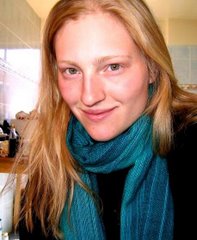One of the main reasons I originally came to Bolivia this summer, other than to work on my Spanish, was to set up an affiliation to pursue a Fullbright Grant. Having made my way into the Hospital, the basic of the grant (other than the actual writing) are well on their way. I'm planning on doing a project on the communication, or lack thereof, between patients and doctors, and how this affects both the perception and efficacy of medical care. I was imagining that it would consist of interviewing the patients and doctors, but today I realized that I have never actually tried to conduct an interview. (talking to patients doesn't count). So , I wrote down some preliminary questions, found the friendliest and most bored looking patient, and went at it.
The patient who I decided to interview, a 56 year-old woman who lives in one of the higher, more indigenous neighborhoods of the city (actually near where I used to live), was surprisingly eager to talk to me. I'm always a little taken aback by the variety of responses here, ranging from cordial and obliging to standoffish and downright rude. As far as the content of the interview went, I'd put my comprehension at about 50%, not because my Spanish is terrible, but more because the woman had a very thick Aymaran accent. "Dieciséis" (16) came out as "Diesei", and the ends and beginnings of her words were blended together.
It also took me a while to figure out the right questions. I began by asking her about her illness, about her family, about her general experience in the hospital, and then I moved onto more specific questions about her interactions with the doctors. She spoke highly of the care she had received in the Pabelon Italiano, but finally she began to talk about how some of the doctors in the other parts of the Hospital had mistreated her. At the end of the interview I thanked her, started to shake her hand, and then realized that a kiss on the cheek (the Bolivian way of greeting people) would be more appropriate. Seeing the smile on her face, the enthusiasm as she gripped me hand and wished me good luck, made the whole thing worthwhile.
I walked away surprised that she was so appreciative of the care she had received, but also with a better understanding of the variety in medical care in the Hospital de Clinicas. I don't suppose that it will be hard to actually conduct the interviews, but more to figure out the right questions to ask and the right areas to ask them in. But then again, variety is the spice of life, eh?
miércoles, 8 de agosto de 2007
Suscribirse a:
Comentarios de la entrada (Atom)

1 comentario:
You need to eat more pickles to keep you healthy:) Tio Roberto
Publicar un comentario